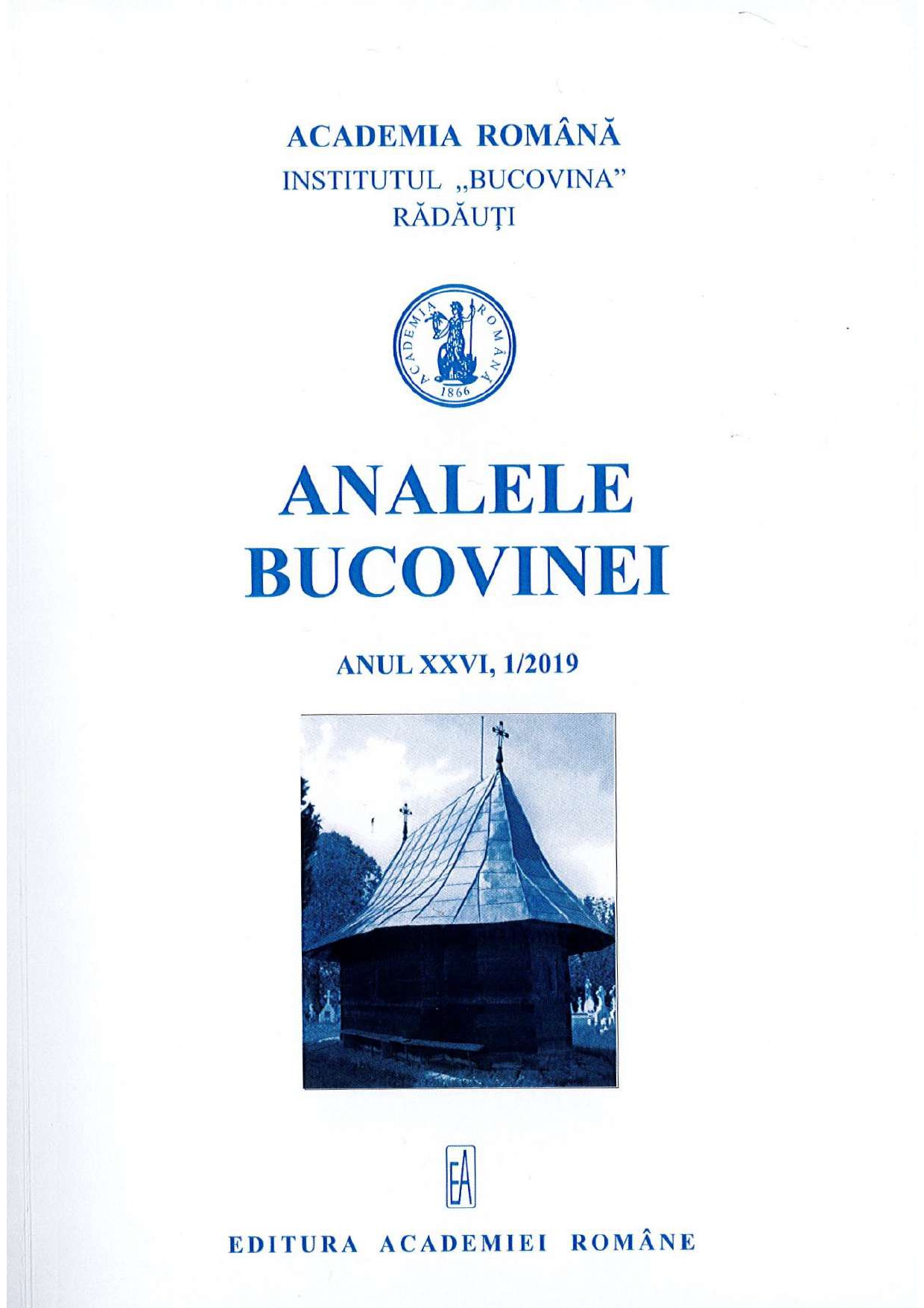DIE MULTIKULTURELLE BUKOWINA ALS VERMÄCHTNIS BETRACHTET
The Multicultural Bukovina Seen as a Legacy
Author(s): Ortfried KotzianSubject(s): Cultural history
Published by: Editura Academiei Române
Keywords: Bukovina; TarasKijak; D. Vatamaniuc; Kurt Rein; Theo Stammen;
Summary/Abstract: In the following article, Dr OrtfriedKotzian evokes four personalities, whose activity and scientific concerns centred on historical Bukovina. The first is Prof. Dr TarasKijak (born 23. 03. 1944 – deceased on 10.01.2018 in Chernivtsi). He was the head of the foreign language department of the “YurijFedkoviczˮ University in Chernivtsi. He was a founding member of the Bukovina Research Center inChernivtsi, striving to awaken among the students the interest in the history and culture of the northern area of the former Bukovina, now located between the borders of the Ukrainian state. Professor TarasKijak specifically encouraged the translation into Ukrainian of German history works and of the Bukovinian German-language writers promoted in the West. He also sought direct contact with the Germans who lived in Chernivtsi, together with whom he set up the German-Austrian Culture Association, based in the former German House. TarasKijak established strong links with the Bukovina Institute in Augsburg/Germany, facilitating the knowledge and exchange of ideas between Ukrainian and German students. The author then presents the one who was a founding member of the Bukovina Study Center in Rădăuţi, the academician DimitrieVatamaniuc (born on September 25, 1920 – died on July 4, 2018, in Bucharest). Famous researcher and editor of the works of the national poet MihaiEminescu, Prof. D. Vatamaniuc was a fervent supporter of the history and culture of the southern part of Bukovina, today between Romania’s borders. He initiated the periodical of the institute, the “Annals of Bukovinaˮ and contributed to each number with valuable editorials and articles. He supported the partnership between the three Bukovina Institutes, one of the principles that have always guided him being mutual respect, in spite of the different opinions regarding the history of Bukovina. The article continues with the presentation of the well-known historian and professor Dr Kurt Rein (born on 03.06.1932 in FrătăuţiiVechi – deceased on 23.08.2018 at BaldhambeiMünchen). He was of Bukovinian origin, he loved his native country, and his scientific concerns focused on Bukovina and the history and culture of the Bukovinian Germans. He was concerned with fundamental research, especially German language and dialects. Prof. Dr Theo Stammen (born on 11.07.1933 at Wankum / Niederrhein – deceased on 04.10.2018 in Munich) is evoked in the last part of the article. The author notes a special fact: Prof. Stammen, as deputy director of the Bukovina Institute in Augsburg, has been involved in his work without having been born, travelled or ever spent time in Bukovina. Being a professor (head of the Department of Political Science) at the University of Augsburg, he supported the passage of the Institute under its authority. Among the major projects he has coordinated, the author mentions the one titled History of the Parliament and Parties of Bukovina between 1861 and 1940, conducted in collaboration with Dipl. Sc. Pol. Otto-Friedrich Hallabrin. The author’s conclusion is that what particularly connected all those presented above was that they considered Bukovina to be a legacy for the generations of today and for those that will come.
Journal: ANALELE BUCOVINEI
- Issue Year: 52/2019
- Issue No: 1
- Page Range: 19-27
- Page Count: 9
- Language: German

